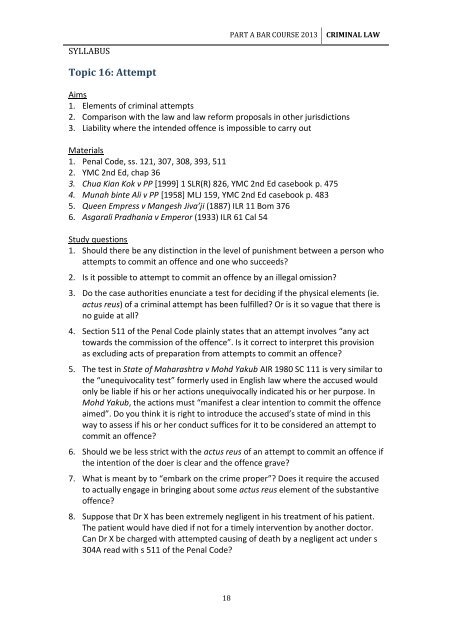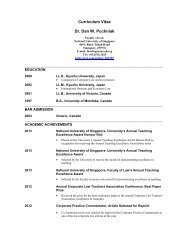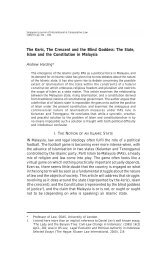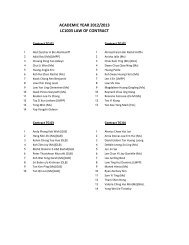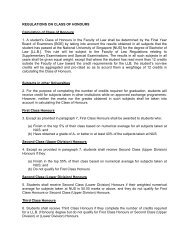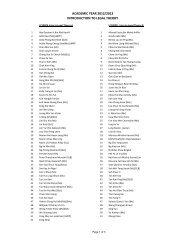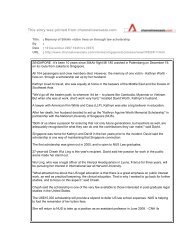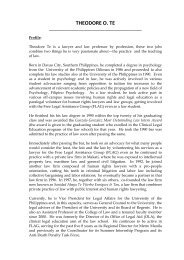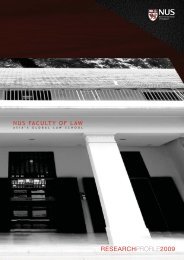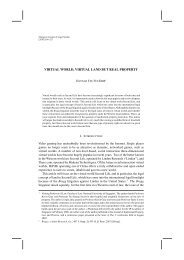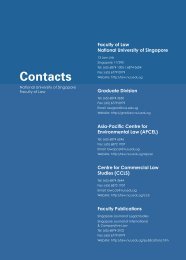PART A BAR COURSE 2013 CRIMINAL LAW
PART A BAR COURSE 2013 CRIMINAL LAW
PART A BAR COURSE 2013 CRIMINAL LAW
- No tags were found...
You also want an ePaper? Increase the reach of your titles
YUMPU automatically turns print PDFs into web optimized ePapers that Google loves.
<strong>PART</strong> A <strong>BAR</strong> <strong>COURSE</strong> <strong>2013</strong> <strong>CRIMINAL</strong> <strong>LAW</strong>SYLLABUSTopic 16: AttemptAims1. Elements of criminal attempts2. Comparison with the law and law reform proposals in other jurisdictions3. Liability where the intended offence is impossible to carry outMaterials1. Penal Code, ss. 121, 307, 308, 393, 5112. YMC 2nd Ed, chap 363. Chua Kian Kok v PP [1999] 1 SLR(R) 826, YMC 2nd Ed casebook p. 4754. Munah binte Ali v PP [1958] MLJ 159, YMC 2nd Ed casebook p. 4835. Queen Empress v Mangesh Jiva’ji (1887) ILR 11 Bom 3766. Asgarali Pradhania v Emperor (1933) ILR 61 Cal 54Study questions1. Should there be any distinction in the level of punishment between a person whoattempts to commit an offence and one who succeeds?2. Is it possible to attempt to commit an offence by an illegal omission?3. Do the case authorities enunciate a test for deciding if the physical elements (ie.actus reus) of a criminal attempt has been fulfilled? Or is it so vague that there isno guide at all?4. Section 511 of the Penal Code plainly states that an attempt involves “any acttowards the commission of the offence”. Is it correct to interpret this provisionas excluding acts of preparation from attempts to commit an offence?5. The test in State of Maharashtra v Mohd Yakub AIR 1980 SC 111 is very similar tothe “unequivocality test” formerly used in English law where the accused wouldonly be liable if his or her actions unequivocally indicated his or her purpose. InMohd Yakub, the actions must “manifest a clear intention to commit the offenceaimed”. Do you think it is right to introduce the accused’s state of mind in thisway to assess if his or her conduct suffices for it to be considered an attempt tocommit an offence?6. Should we be less strict with the actus reus of an attempt to commit an offence ifthe intention of the doer is clear and the offence grave?7. What is meant by to “embark on the crime proper”? Does it require the accusedto actually engage in bringing about some actus reus element of the substantiveoffence?8. Suppose that Dr X has been extremely negligent in his treatment of his patient.The patient would have died if not for a timely intervention by another doctor.Can Dr X be charged with attempted causing of death by a negligent act under s304A read with s 511 of the Penal Code?18


